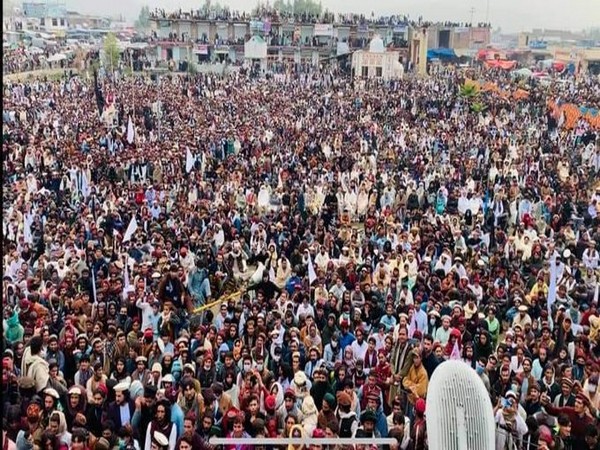COPENHAGEN: It is imperative for PTM leadership to actively pursue substantive measures aimed at promoting women’s rights and fostering their integral inclusion within the movement.
In the heart of the Pashtun belt, a grassroots movement has ignited a spark of hope for justice and rights led by a young and charismatic leader, Manzoor Ahmad Pashteen. The Pashtun Tahafuz Movement (PTM) stands as a guiding light of change, tirelessly advocating for the rights of Pashtun people despite facing systematic repression and uncertainty. However, as PTM charts its course towards a brighter future, one crucial aspect demands attention: the empowerment of Pashtun women.
STRATEGIC IMPERATIVE OF WOMEN’S INCLUSION
In a society where patriarchal norms have long downgraded Pashtun women to the sidelines, PTM recognizes that true progress and justice can only be achieved through the active participation and empowerment of women. The reasons for this are multiple, rooted in both practicality and principle.
Merely acknowledging women’s empowerment as a requisite for achieving justice and rights for Pashtuns proves inadequate, given that women constitute 50% of our society. Pashtun women, especially, have borne the brunt of prolonged proxy wars, leading to a marked deterioration in their rights.
It is imperative for PTM leadership to actively pursue substantive measures aimed at promoting women’s rights and fostering their integral inclusion within the movement.
INTERCONNECTED CHALLENGES: WOMEN’S RIGHTS AND HUMAN RIGHTS
First and foremost, the inclusion of women in PTM is not just a matter of equality; it’s a strategic necessity. Pashtun women make up a significant portion of the population, and their voices and perspectives are essential in shaping the movement’s agenda and goals. By marginalizing women, PTM risks alienating a crucial constituency whose support and contributions are essential for the movement’s success.
Moreover, the issues faced by Pashtun women are deeply intertwined with broader human rights concerns. From arbitrary arrests to enforced disappearances, Pashtun women bear the impact of state repression alongside their male counterparts. By addressing the specific challenges faced by women, PTM can better serve the needs of the entire Pashtun community, fostering a more inclusive and effective movement for change.
MORAL IMPERATIVE: EMPOWERING PASHTUN WOMEN
But perhaps most importantly, empowering Pashtun women is not just a means to an end—it’s a moral imperative. In a region plagued by violence and injustice, Pashtun women have long been denied their basic rights and freedoms. By championing women’s rights, PTM sends a powerful message: that justice knows no gender, and that every individual, regardless of gender, deserves to live a life of dignity and respect.
HISTORICAL PRECEDENT: FLOURISHING SOCIETIES WITH WOMEN’S EMPOWERMENT
History has shown us time and again that societies flourish when women are given the opportunity to thrive. From education to employment, from healthcare to political participation, the empowerment of women is not just a matter of fairness—it’s a matter of progress and prosperity for all.
PLACING WOMEN’S EMPOWERMENT AT THE FOREFRONT
As PTM continues its fight for justice and rights in Pakistan, it must place the empowerment of Pashtun women at the forefront of its agenda. By doing so, PTM not only honors the principles of equality and justice but also ensures that the voices of all Pashtuns, men and women alike, are heard and valued in the struggle for a better future.
Levsa Bayankhail, the General Secretary of the Pashtun Protection Movement in Denmark, is an advocate for human and women’s rights. She holds a Master’s degree in cand.scient.adm, focusing on Pakistan’s collaboration with the Taliban and other extremist groups to advance its geopolitical and foreign policy goals regionally and globally.

